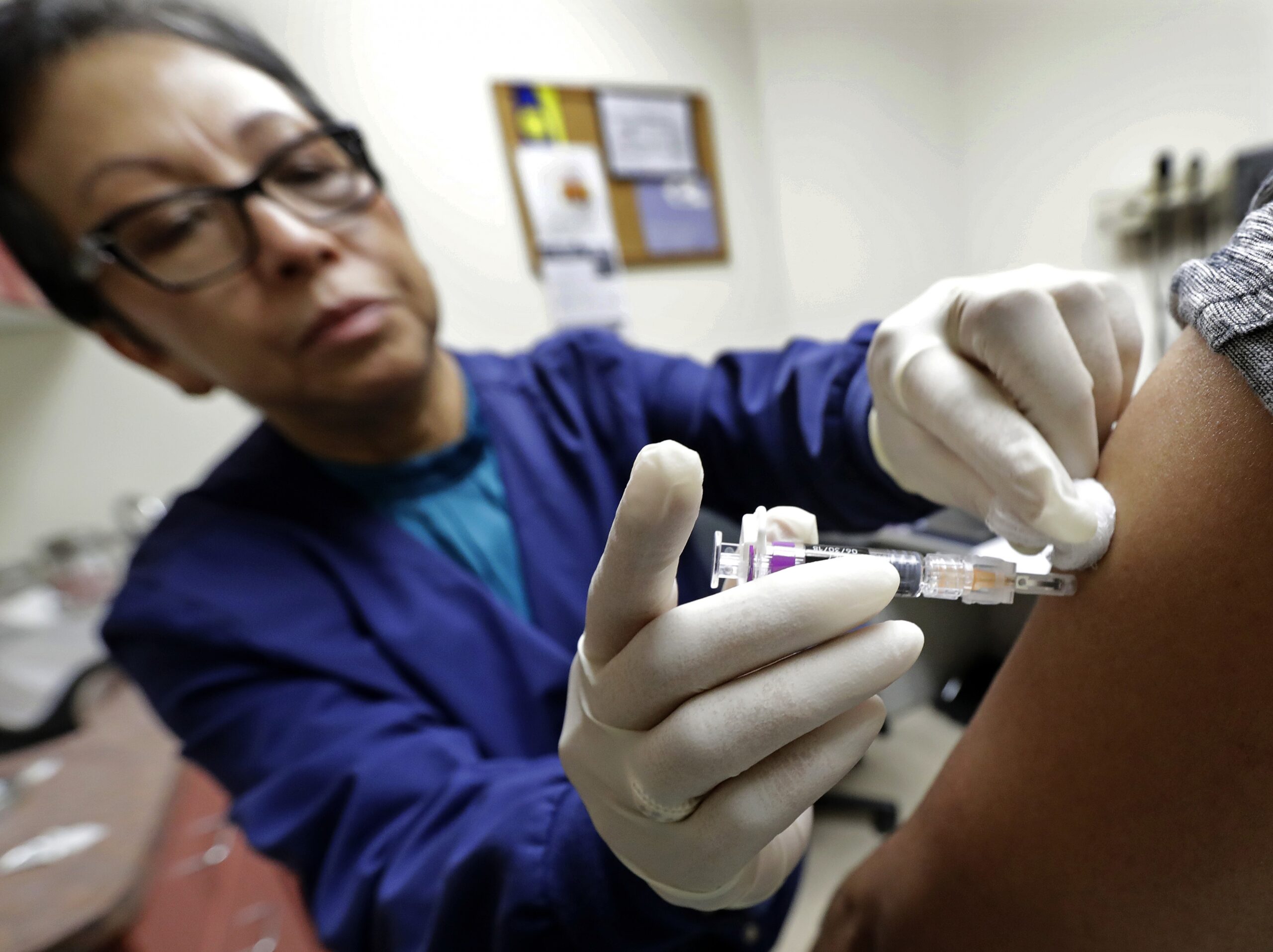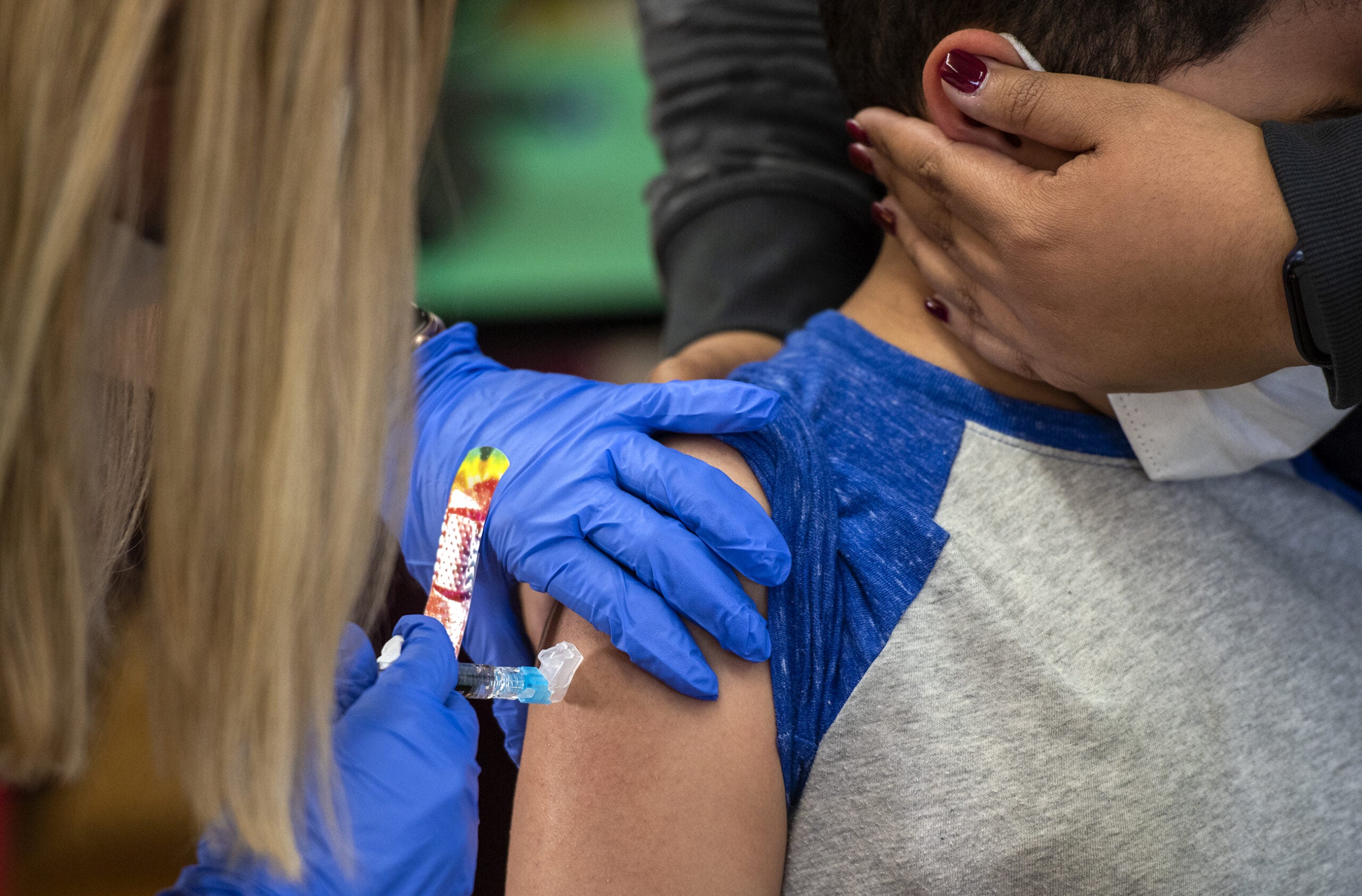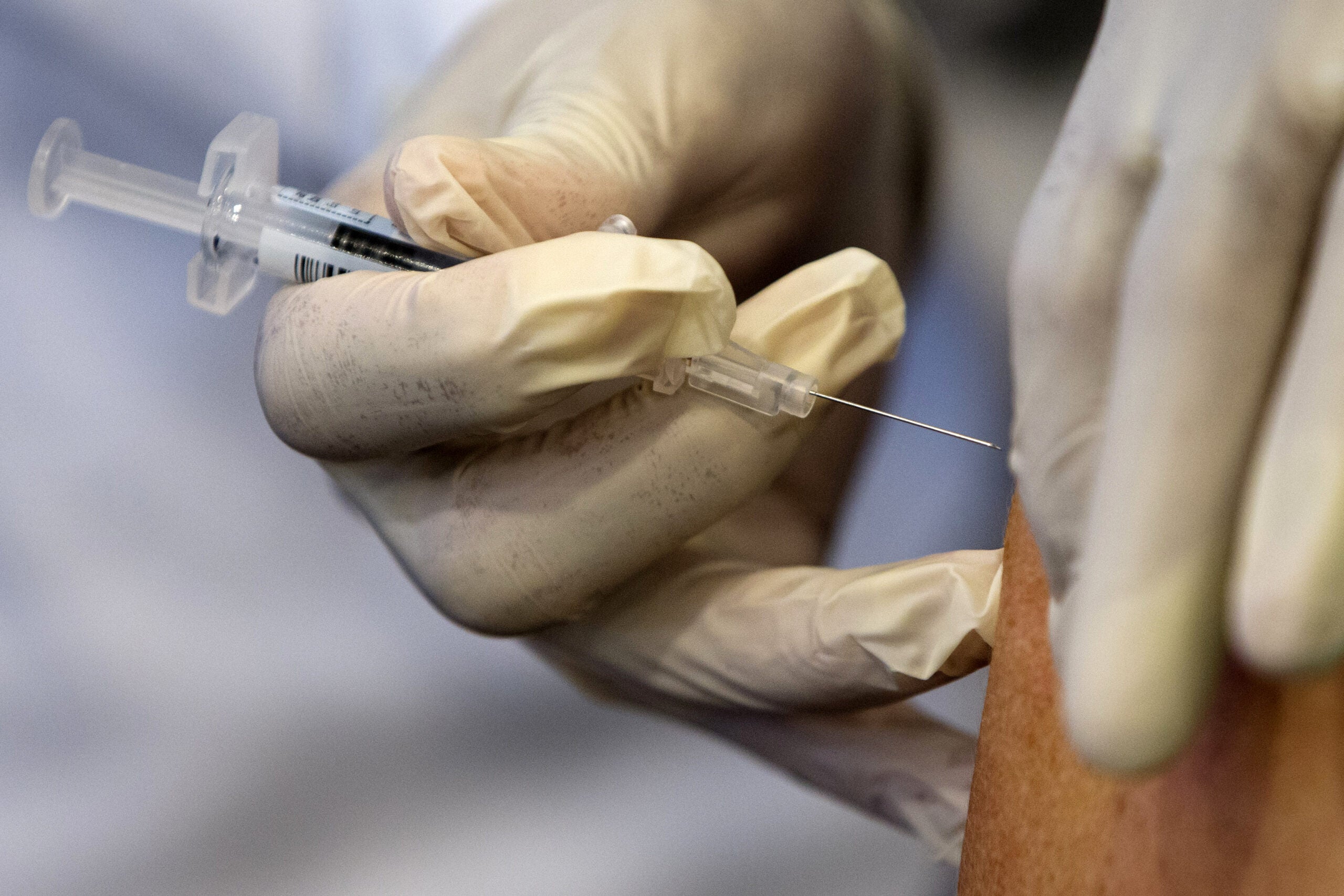After several years of declining vaccination rates, Wisconsin health officials are urging residents to get their flu shot and other boosters this fall.
A national forecast for respiratory illness shows this fall and winter are expected to be more mild than last year, according to Tom Haupt, influenza surveillance coordinator for the state Department of Health Services.
The 2023-24 season was considered moderate to severe, with around 4,000 influenza-associated hospitalizations in Wisconsin.
News with a little more humanity
WPR’s “Wisconsin Today” newsletter keeps you connected to the state you love without feeling overwhelmed. No paywall. No agenda. No corporate filter.
But Haupt said whether or not this year’s season turns out to be milder depends in part on whether the expected number of state residents get their flu shots.
“If we have more people being vaccinated, it could be even a less severe year,” he said. “If fewer people get vaccinated, it could be more severe.”
Flu vaccination rates have declined for the last three years, with only 35 percent of Wisconsinites choosing to get the shot last winter. By comparison, nearly 44 percent of residents got a flu shot during the 2020-2021 season.
COVID-19 booster rates are even worse, with fewer than 19 percent of people choosing to get the updated shot last winter. Dr. Stephanie Schauer, manager of the Wisconsin Immunization Program at DHS, said people need to remember that COVID-19 and influenza are serious diseases.
“We don’t know who or how these diseases will affect an individual,” she said. Mild cases can mean “a couple of really crummy days,” she said, while severe cases can involve severe complications, hospitalization or even death.
As an example, Schauer said half of the children and teens who were hospitalized with COVID-19 in the U.S. last year had no underlying health conditions.
Vaccinations for flu and COVID-19 are covered by most insurance plans. But for those who are uninsured or underinsured, getting the new COVID-19 booster covered will be slightly different this year. Most pandemic-era programs that provided the shot have ended, including the Bridge Access Program operated by the state last winter.
But Schauer said some under- or uninsured adults will still be able to get the COVID booster through the state’s Vaccines for Adults program. The program already provides free or low-cost flu shots at around 120 providers around the state.
The state will have 7,000 COVID boosters available through the program this year, which Schauer said is more than double the number of people who accessed the shot through the Bridge Access Program last year.
She said people should aim to get their shots by the end of October for the best protection.
Wisconsin Public Radio, © Copyright 2025, Board of Regents of the University of Wisconsin System and Wisconsin Educational Communications Board.






